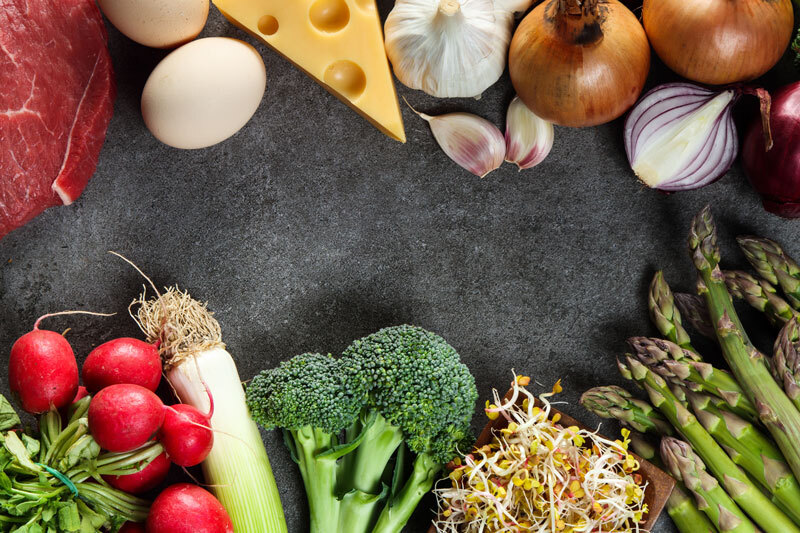Glutathione is the master antioxidant found in every cell of the body. If you want to feel good and age well, you need to increase your intake of glutathione. This superhero can do everything from promoting radiant skin and reducing inflammation to boosting immunity and supporting healthy detoxification. Glutathione health benefits are vast, and today we’re going to talk about simple ways to increase your intake.
But before we get into the good stuff, let’s talk about the bad stuff. Low glutathione levels have been linked to a bunch of risk factors, including high levels of stress, aging, and processed foods. Low glutathione has even been linked to NSAID use (Advil, Motrin, Nuprin etc.) and even Tylenol.
To avoid depletion of glutathione levels, choose to create a lifestyle that reduces the need for drugs and OTC medications (as much as possible). Try natural remedies first, like essential oils, arnica, and CBD. Eat whole foods (we’re giving you a list!), take time to yourself, and prioritize self-love.
Why is this so important?
Strengthening the glutathione system is critical for effective detoxification. Not enough glutathione can cause toxins to overload the liver, central nervous system, breasts, and prostate. Supplementing with a good glutathione source will help maintain healthy cellular function and structure for your healthiest, most vibrant self.
How to increase glutathione naturally
Eat Foods with Glutathione
The easiest way to increase glutathione is to eat whole foods rich in glutathione. So get out your grocery list, and get ready to write these down:
- Whey protein
- Sulfuric foods like arugula, bok choy, broccoli, brussel sprouts, and cabbage
- Foods high in selenium like yellowfin tuna, brazil nuts, canned sardines, grass-fed beef, turkey, chicken, eggs, spinach
- Foods rich in Vitamins C & E like oranges, kale, red peppers, strawberries, grapefruit, almonds, spinach, sweet potato, avocado, sunflower seeds, and good olive oil
- Organ meats like beef liver
Herbs to Increase Glutathione
Bitter herbs are a great way to increase glutathione-S-transferase levels while simultaneously supporting the liver, kidneys, and intestines’ function. Look for these herbs in teas; add them to salads or smoothies.
- Dandelion (Dr. Jones loves this Dandelion supplement)
- Burdock
- Goldenrod
- Milk thistle (Dr. Jones loves this Milk thistle supplement)
Supplements to help increase Glutathione levels
Glutathione potentiates Vitamin C and E, which means that we need glutathione to strengthen the effects of Vitamins C and E. So we could say the glutathione benefits for skin are undeniable. If you want a radiant complexion and to minimize wrinkles, consider adding a supplement with glutathione in it, or
- Lactobacillus Fermentum ME-3: type of probiotic strain found to synthesize glutathione. In a clinical trial, individuals taking ME-3 gain a remarkable 49 percent increase in the ratio of reduced oxidized glutathione (1) Look for probiotics and products containing ME-2 for a fast and efficient way to reliably boost glutathione levels on a daily basis.
- Lipoic Acid or Vitamin C-liposomal: the liposomal form of vitamin C is the best because it encapsulates the therapeutic compounds to help them get into the cell, protect from degradation, and increase bioavailability. Liposomes can also cross the blood-brain barrier, which will help support the optimal function of the cell membrane allowing nutrients to go in and toxins to get out.
- L-Glutathione: look for products with straight glutathione or an effective blend to help longevity and general wellness
To check out our supplement, Beauty Collagen Complex with potent glutathione, go here!
To learn more, check out our special podcast episode all about glutathione.





READ the Latest
Health Habits
Longevity
Health Habits
Health Habits